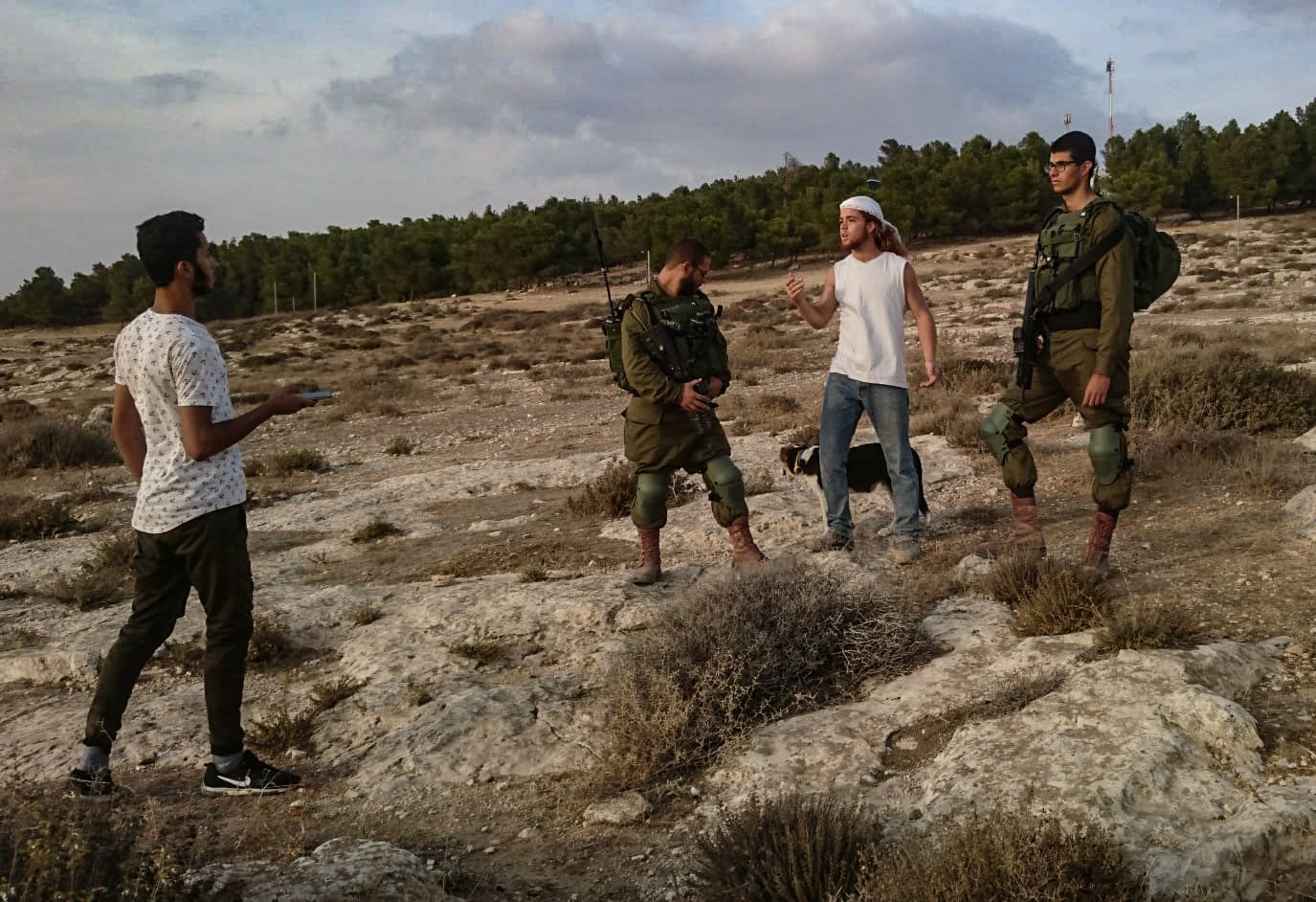Tanya, Haifa
While serving as an EA, I had the opportunity and privilege to visit a synagogue and a school in Haifa. I met the community and spoke to school pupils about to be conscripted into the military. EAs were warmly welcomed and included in Shabbat with one of the local families. I had dinner with Tanya and her son Dan.
Tanya is originally from Croatia, which was part of Yugoslavia when she was a child. After she finished university she volunteered in a kibbutz and attended ulpan – an intensive course in Hebrew.
Israeli soldiers pass by Palestinian children in Hebron
‘Righteous among the nations’
Tanya’s mother was orphaned when her grandparents were killed by the Ustaše (Croatian fascist militia) during the Holocaust. Yad Vashem, the Holocaust museum and memorial centre in Jerusalem, commemorates the ‘Righteous Among The Nations’. These were non-Jews who saved Jews during the Holocaust, always at great personal risk to themselves and their families. Reflecting on this, Tanya said;
The Hebrew students in the kibbutz came from all over the world but had one thing in common – being a Jew. Being among them was very powerful for Tanya. She reconnected with her Jewish identity and, since her homeland had fallen apart during the breakup of Yugoslavia, decided to make a life in Israel.
Around Tanya’s table, over dinner and apricot rakia – a fruit brandy popular in the Balkans – we were able to talk very openly and personally. We spoke about our experiences and perceptions of life in Israel and the occupied Palestinian territory. While Tanya feels that the Palestinian Authority ‘does not pay due attention to their own people’, she also talked about the pain of facing up to what the government of Israel, a country that represents hope for so many Jews, has become when it comes to the treatment of Palestinians.
Military Service
At 17, after high school, all Israeli citizens – apart from those of Palestinian descent, the ultra-religious, or those with a medical condition – are required to join the army. Many serve in the occupied Palestinian territory. Girls serve for two years while boys serve for three. Dan said that, although he has to serve as a soldier, he really wants to make as positive an impact in the military as possible. Tanya told us how painful it is that;
Israeli soldiers stand with a settler as he harasses a Palestinian farmer in South Hebron Hills



